Gravitt Discusses Cancer Health Disparities Research
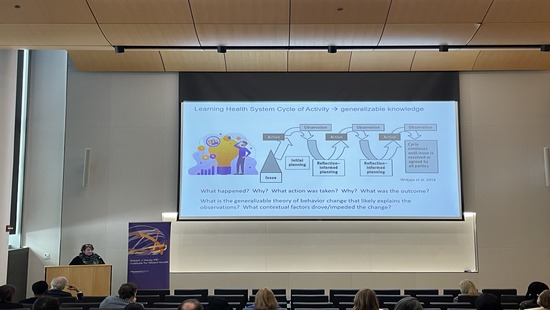
Cancer kills more people in low- and middle-income countries than HIV/AIDS, tuberculosis and malaria combined. The Center for Global Oncology at Havey Institute for Global Health is working to change that.
The Center for Global Oncology, a joint center between the Robert H. Lurie Comprehensive Cancer Center of Northwestern University and Havey Institute for Global Health, emphasizes innovative research for the people who most need it.
Due to challenges in diagnosing lung cancer, often leading to late diagnoses, there is a need to improve early detection and prevention methods.
The Center for Global Oncology studies infection associated lung cancer, research led by Mamoudou Maiga, MD, PhD, center associate director, and Lifang Hou, MD, PhD, center director.
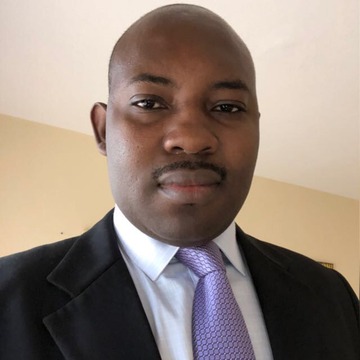
Around 60% of lung cancer cases globally are concentrated in low- and middle-income countries, where tuberculosis is also highly prevalent.”
The "Role of Tuberculosis in Lung Cancer" research, funded as a Havey Institute for Global Health Catalyzer project, examines the significant connection between tuberculosis (TB) and the increased risk of developing lung cancer, particularly in low- and middle-income countries like Mali.
“Around 60% of lung cancer cases globally are concentrated in low- and middle-income countries, where tuberculosis is also highly prevalent,” Maiga said.
The study focuses on identifying new genetic and epigenetic biomarkers to facilitate early detection and personalized treatment opportunities in low resource settings.
“In these regions, lung cancer stands as the first and second cause of cancer related deaths among males and females, respectively, often due to late-stage diagnoses. Hence, there is an urgent need for improved tools for early detection and treatment,” Maiga said.
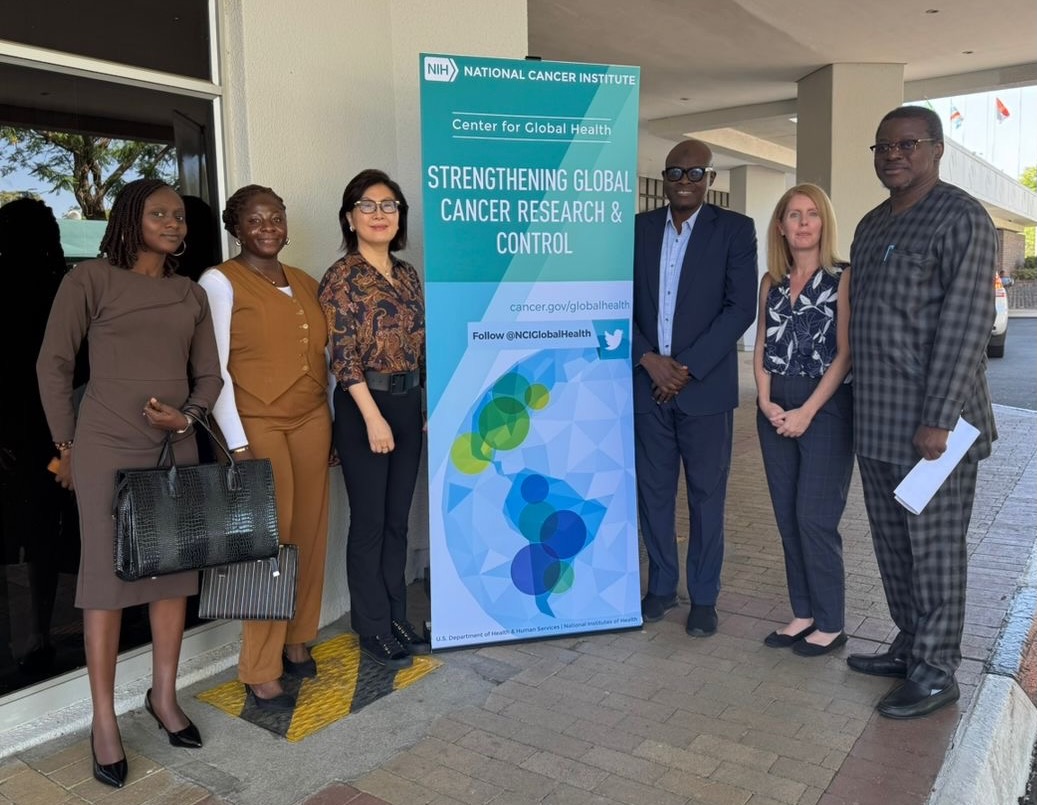
Members of the Center for Global Oncology attend "Strengthening Global Cancer Research & Control" conference in Botswana in November 2024.
Hou and the Center for Global Oncology team are also researching oral (mouth) cancer to better understand the epidemiology and biology of oral HPV infection, specifically in people living with HIV.
Their research is primarily in Nigeria, a country with high HIV prevalence, and they are working to help develop potential non-invasive screening and early detection biomarkers of oral and oropharyngeal cancers in people living with HIV.
As HIV is controlled with antiretroviral therapy, people living with HIV live longer with chronic inflammation and continued immunodeficiency, making them even more susceptible to HPV infection and its cancer-promoting consequences.
The “Epigenetic study of oral HPV infection-associated oral cancer in people living with HIV in Nigeria” research team includes Robert Murphy, MD, Jun Wang, PhD, Jian-Jun Wei, MD, Yinan Zheng, PhD, and Mamoudou Maiga, MD, PhD from Northwestern University and Isaac Adewole, MD, Akinyele Adisa, BDS, Adekunle Daniel, MD, Imran Morhason-Bello, MD, PhD, from University of Ibadan.
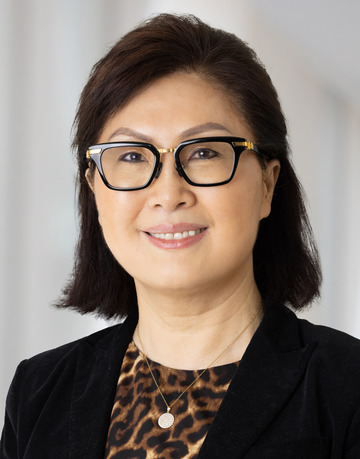
Innovative, cost-appropriate, and culturally adaptive strategies for cervical cancer screening are needed for countries with limited resources.”
Other pivotal cancer research includes two of the Center for Global Oncology’s key cervical cancer-focused projects: the Flanagan Foundation “HPV-Associated Cancers Prevention and Control Program in Africa” and the National Cancer Institute (NCI) U01 grant “West Africa Self-Sampling HPV Based Cervical Cancer Control Program (WA-SS-HCCP) for WLWHA: Barriers, challenges, and needs.”
In “HPV-Associated Cancers Prevention and Control Program in Africa,” Hou and Maiga research human papillomavirus (HPV), which is the most common sexually transmitted infection worldwide and a leading cause of cervical cancer, with an estimated one-third of all cancer diagnoses in low- and middle-income countries.
The highest rates of cervical cancer incidence and related death occur in Sub-Saharan Africa, where approximately 60% of all cervical cancer cases are in women living with HIV/AIDS.
In the NIH/NCI funded project “West Africa Self-Sampling HPV Based Cervical Cancer Control Program (WA-SS-HCCP) for WLWHA: Barriers, challenges, and needs,” principal investigator Hou, in collaboration with multiple PIs Maiga and Jane Holl, MD, explores increasing HPV testing for HIV infected women to reduce cervical cancer morbidity and mortality in Nigeria and Mali.
“In high income countries, these preventive strategies have led to a steep decline in cervical cancer; however, they remain largely inaccessible to women in low- and middle-income countries,” Hou said. “Innovative, cost-appropriate, and culturally adaptive strategies for cervical cancer screening are needed for countries with limited resources.”
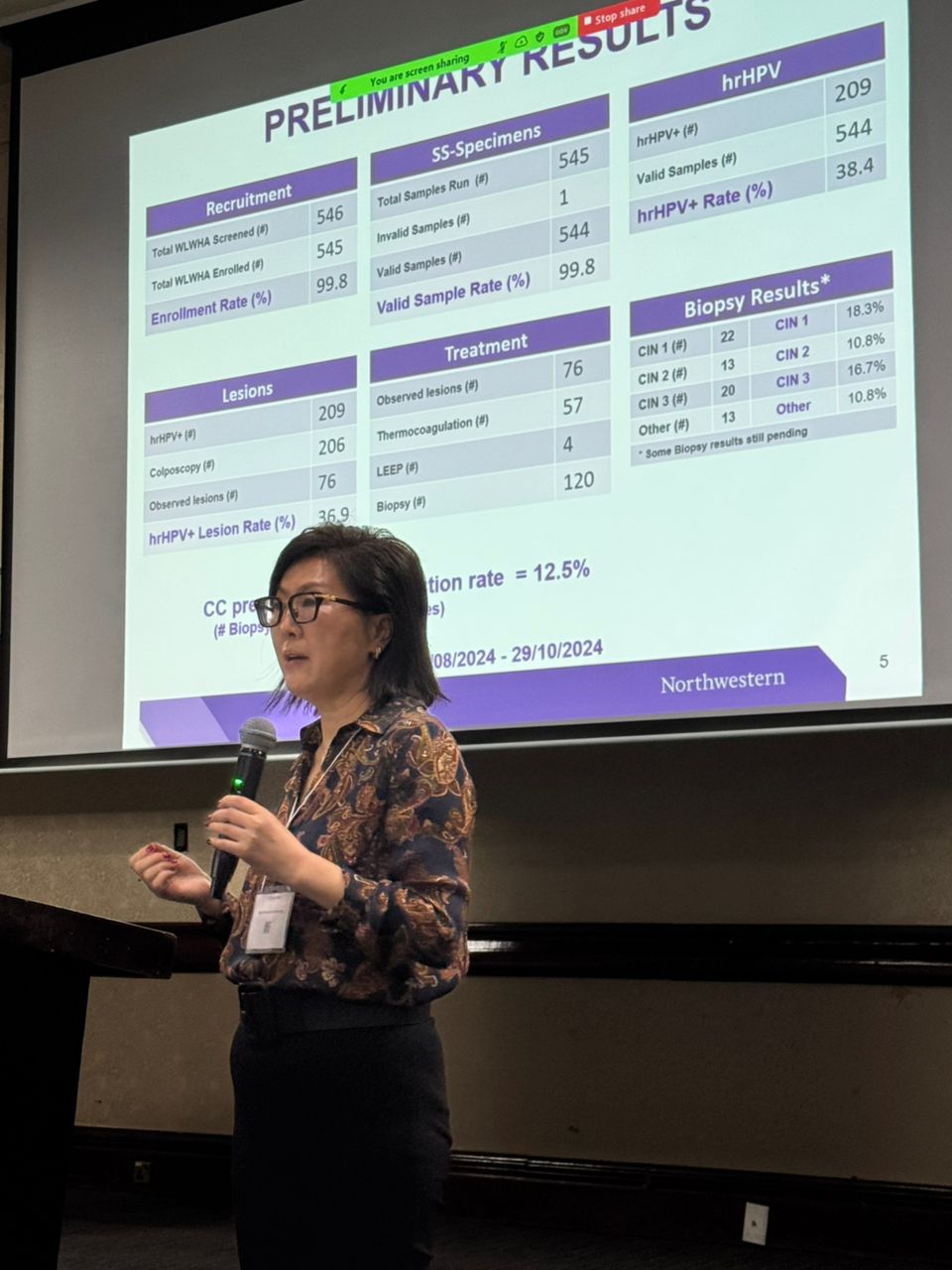
The Center for Global Oncology is a shared center with the Robert H. Lurie Comprehensive Cancer Center of Northwestern University and Havey Institute for Global Health.
Lifang Hou, MD, PhD, Robert Murphy, MD, and Yinan Zheng, PhD are members of Institute for Public Health and Medicine (IPHAM). Hou, Mamoudou Maiga, MD, PhD, and Jun Wang, PhD are members of Northwestern University Clinical and Translational Sciences Institute (NUCATS). Jian-Jun Wei, MD is a member of the Center for Reproductive Science.
To learn more about the Center for Global Oncology, visit their website.
For details on events, news, and funding opportunities, sign up for the Havey Institute for Global Health newsletter.

